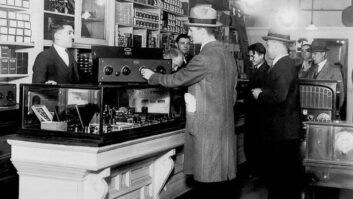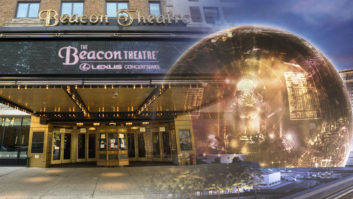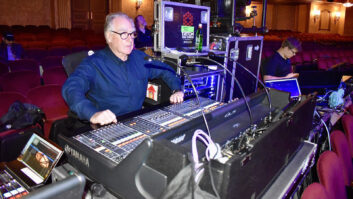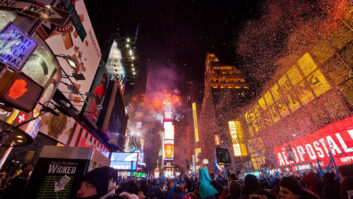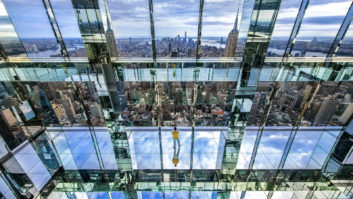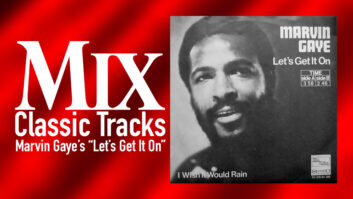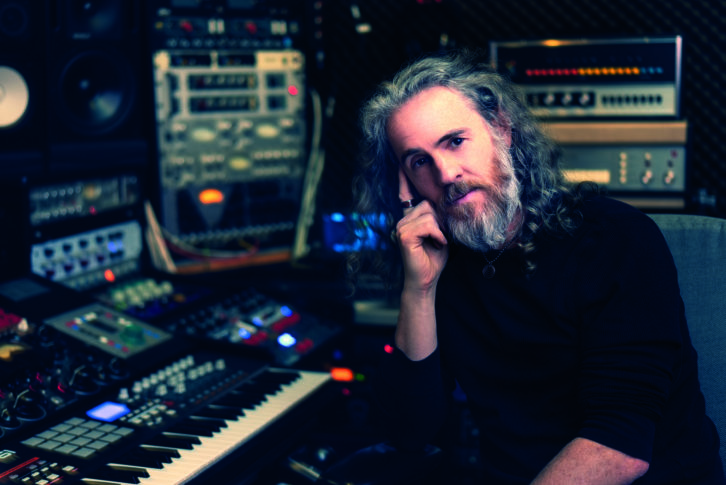
This past Fall, Mix spoke with producer/engineer Scott Jacoby about how he and his partner in Eusonia Enterprises, James McKinney, helped to put together the studios for the Anguilla Music Academy (Mix December 2020 cover story), working with Darius James and the Sangreal Foundation to bring technology, curriculum and expertise to the Caribbean island.
During those conversations, the city of New York came up—what it’s been like when the largest and most vibrant city in North America simply shuts down. Beyond Broadway, the Met, the venues and all the other implications, what has it been like for artists, musicians and studios in our little slice of the world? So we asked Scott, a pianist, drummer, self-taught engineer and lifelong New Yorker, to tell us his story.
So, New York City…
It definitely is in my blood, and my family’s, too, going back to my grandparents and great-grandparents, I believe, in Brooklyn. It’s all of the gravity of our family—my wife, too—it’s all New York. We live in Greenwich Village, and my studio, Eusonia Studios, is only about 10 blocks away, in the Flatiron District.
Do you remember the day things shut down for good?
The thing that will stick out to me for the rest of my life, and I’m not alone in this, is that in the very early section of the first few weeks, where things were getting shut down, it was an extremely—and there really is no other word—just a surreal time here. The busiest, most cosmopolitan city in the world and no one is on the street. I have pictures from my walk to my studios at 25th and Park where I take a camera, and pointing west on 23rd Street, you don’t see one human, one bus, one car. It was bizarre—everyone was referencing the Will Smith movie I Am Legend. I think any New Yorker who’s seen that relates to just the fantasy aspect and also an apocalyptic sense—none of the things that New York is culturally and socially were there. You walk out in the streets, and no one.
I feel for the musicians, the Broadway musicians, the touring, the session musicians, my heart goes out to them first. What are we going to do? Broadway goes down? It’s crazy. That has put a lot of people in very precarious situations. As you know, there are not that many musicians who are super-well off. When things are good, they can still be struggling and in many cases trying to get by. So I felt that immediately.
When you think about the people who choose to live in New York City, they’re here for very specific reasons. People come to New York and it’s a Mecca for a lot of things. And what happened in March is that people were seeing for the first time that almost everything that makes New York, New York—not just Broadway, but the restaurants the culture, the street life, the bars, the art—everything that makes New York be New York was not there anymore. To me that is the most poignant or extreme thing that you could say. What’s left after all of those things are gone? You have a bunch of big buildings and people in their apartments. It’s really, really weird.
You’ve kept working, I understand. What have you been working on, and what has it been like?
I mixed the Jason Mraz album; that was a good one. And the group Straight No Chaser, they’re an a cappella group and I’ve done some work for them on different albums. The latest was a Christmas album, and I did some arrangements for them. “Frosty the Snowman” was pretty fun. Kevin Killen produced the album. There’s 12 guys and they all did it at their home studios and then Kevin assembled it.
And then one of the main singers from Straight No Chaser is Jerome Collins, a soul singer. We’ve had a long-standing collaboration, and I think we just did our best work this year. It will be out soon, and I’m really excited about it.
Another one from this year, coming out soon, is an artist named Jewels Gold, a singer songwriter who, for lack of a better comparison, I would put in a sort of Tori Kelly camp—really musical and sort of sophisticated harmonically, very melodic.
And Jose James is as a longtime collaborative mind. We co-wrote together and produced, and he just gets some of the best bands in the world, incredible musicians. Nate Smith is playing on drums on his stuff. Ben Williams on bass, who’s incredible, just amazing.
For most of the stuff I just mentioned, a couple of things started before Covid and then some have kind of merged into it.
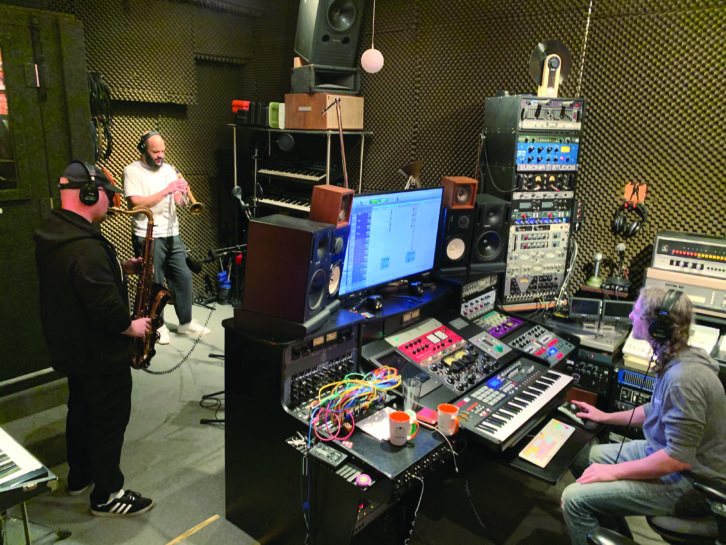
What has it been like working during Covid?
I think we all have to kind of make our own destiny in these times. I had started all of these productions and albums and EPs at the beginning of 2020, obviously with no idea what was coming. And then all of a sudden, I’m at this huge impasse. I can do the tracks on my own, even remote sessions, so I’m lucky. With The Roots, they played horns on Jewels’ tracks and some on Jerome’s. That stuff, you can pull off remote, even section work, but the vocals is the real impasse and it’s an impasse on every level—technically, techniques, compression and all that. If you’re trying to produce vocals over a zoom session, you can do it. But it’s not like being in the room with someone. I had to kind of make some decisions. Can we do vocals remotely? And how does that come out? How does it come out sonically? How does it come out vibe-wise? I think there have been some successes and some things that are not.
For vocalists I really felt it was important that they felt it was important to be together, so we all got tested and kept it really tight and just made a bubble with that person. I’m fortunate that my studio is not a commercial studio, there’s no traffic. So if I’m going to have one person coming in, on average maybe three to four times a week to cut background and lead vocals, then that’s a fairly controlled situation. So that’s basically what I’ve been doing the whole year—a lot of remote work and then when necessary, particularly for vocals, we would we do them in person. And it’s worked quite well. I do miss a lot of stuff, but I had to draw a line.
I do think that in difficult times, it’s where you find the greatest ingenuity. You kind of have to have that obstacle. I consider all of this consequential; it’s consequential to your career and to your livelihood and to your family and to your art form. You must continue. Mixers and engineers are, by their very nature, problem solvers. So when the problems arise, Covid or anything else, innovative solutions do come out of it. We don’t have to be in the same room to do a mix. It’s better. But we don’t have to be.
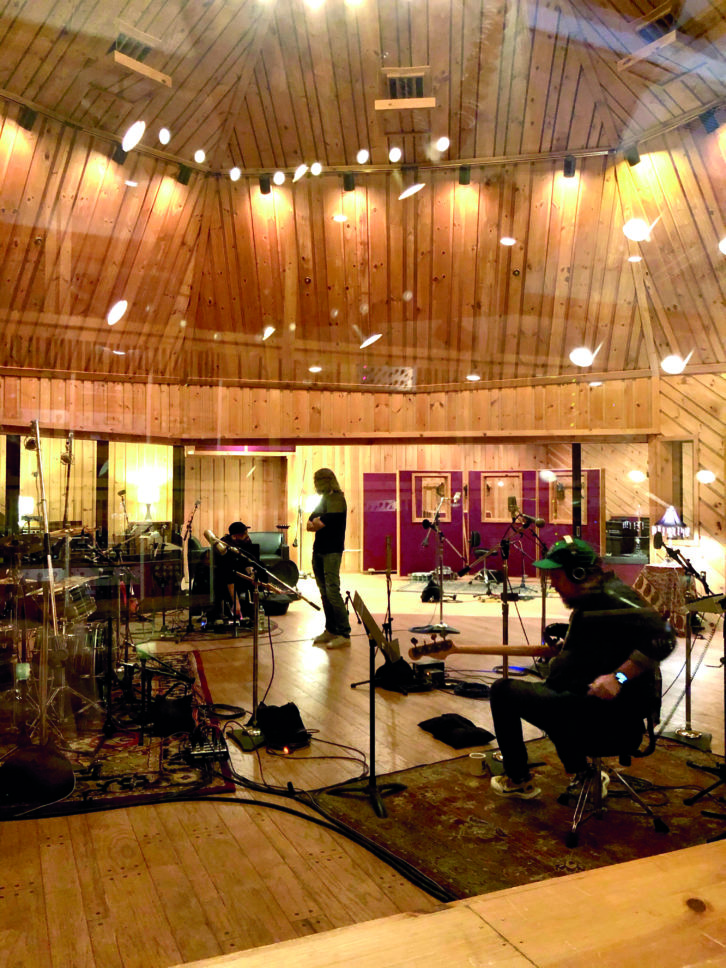
You’re trying to find the positive…
If there is a positive. I guess one positive side right now is that streaming revenue is better than it’s ever been. And so the desire of people to make music, the music creators, the writers, producers, mixers, artists, I think is as strong as it’s ever been. All of the creative energy that could be spent on tour or could be spent on this and that, it’s all being sort of pointed at the studio. New creation. If content was everything before Covid, content is definitely everything right now. I’m excited for that part of it.
Anything else?
Well, I happened to see my best friend for lunch today. And, you know, as we get older, I just feel like you don’t see your friends as much, and particularly during this time. But it was just so great. We went outside, just for a few hours, and talked. I’m not particularly social at all, but I really missed him and I missed the lunches and conversations. It was really nice. Simple, but a really nice time.
